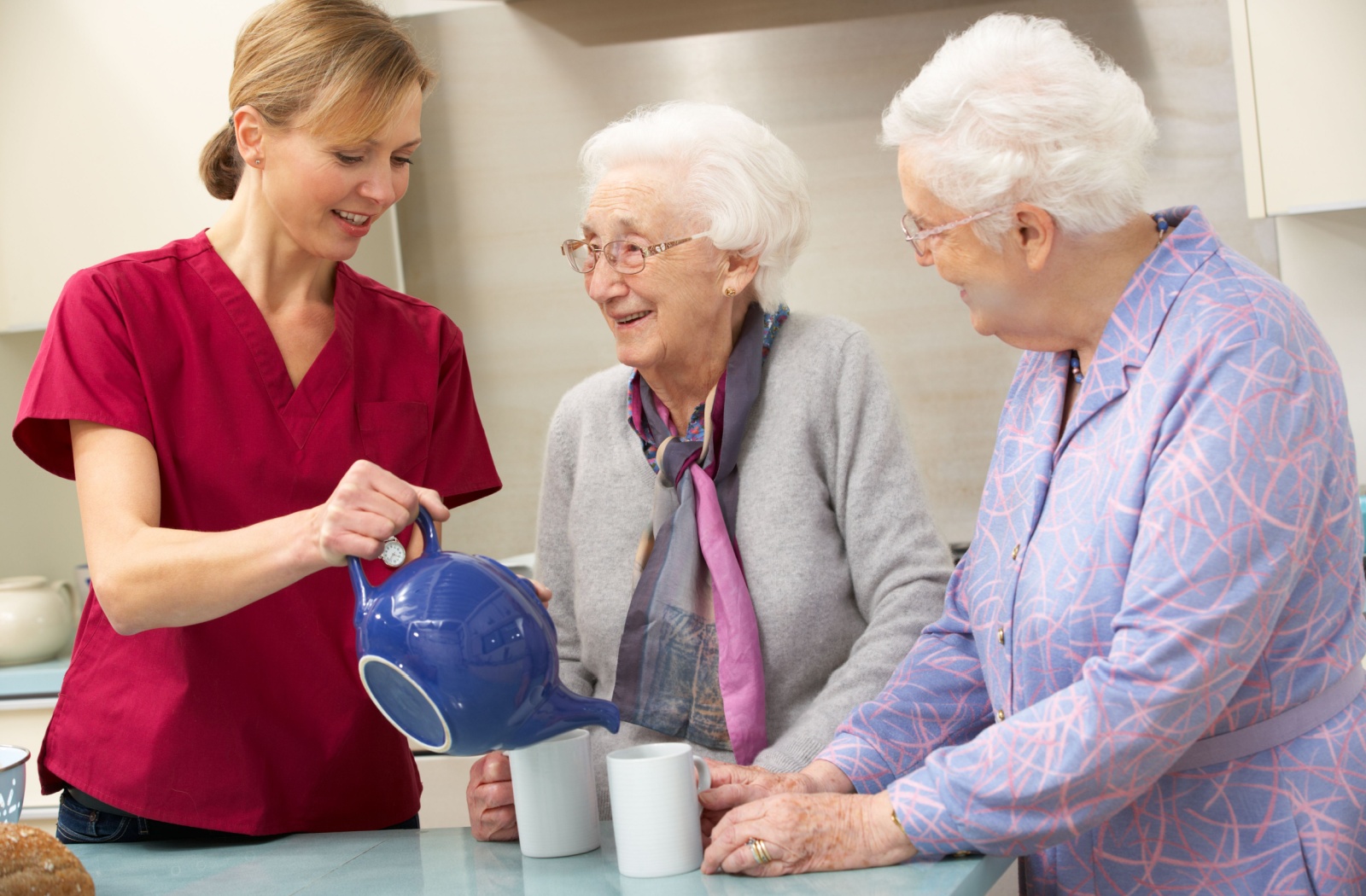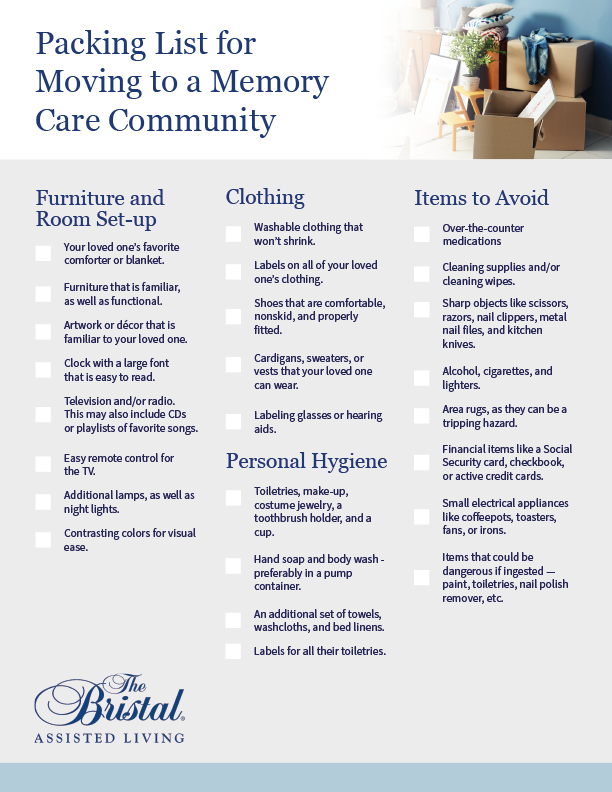Adeptly Managed Programs for High Quality Alzheimers Care Charlotte Providers
Adeptly Managed Programs for High Quality Alzheimers Care Charlotte Providers
Blog Article
Developing a Safe and Encouraging Atmosphere for Alzheimer's Treatment
The production of a risk-free and supportive setting for individuals with Alzheimer's is paramount in improving their quality of life. This entails not only physical adjustments within the home, such as reducing threats and integrating acquainted aspects, yet likewise the execution of organized regimens and significant tasks that satisfy their cognitive demands. Moreover, recognizing the emotional and emotional measurements of care can substantially impact their complacency and link. Exploring these diverse approaches can expose critical understandings right into reliable caregiving techniques that might change the daily experiences of both clients and caretakers.
Comprehending Alzheimer's Demands
Frequently, people with Alzheimer's illness exhibit a variety of needs that need tailored techniques to care. As the problem advances, cognitive decrease manifests in various methods, influencing memory, thinking, and also the ability to carry out everyday activities. Caregivers must recognize these evolving demands to give proper support and guarantee a higher top quality of life for those influenced.
One essential facet of comprehending Alzheimer's needs is recognizing the relevance of regular and experience. Individuals usually discover comfort in established patterns, which can lower stress and anxiety and confusion. Caretakers ought to strive to develop structured day-to-day routines that incorporate purposeful activities straightened with the individual's abilities and interests.
Additionally, effective communication is extremely important. Individuals with Alzheimer's might battle to share themselves or comprehend complex language. Caregivers ought to use simple, clear language, usage non-verbal hints, and technique active paying attention to foster understanding and link.
Lastly, psychological and social requirements can not be overlooked. Supplying opportunities for social interaction and keeping relationships can dramatically enhance psychological health. Caregivers must encourage interaction in area activities or household celebrations, promoting a sense of belonging and objective. Understanding these diverse requirements is essential for producing an encouraging care atmosphere.
Creating a Safe Home
Creating a secure home for people with Alzheimer's disease is important to minimizing threats and advertising self-reliance. The design of the space should prioritize safety and security while permitting for individual comfort. First, remove possible threats such as loosened rugs, sharp objects, and mess, which can bring about drops or mishaps. Make sure that pathways are clear and well-lit, as correct lighting decreases disorientation and enhances flexibility.
Incorporating flexible features is additionally important. Mount grab bars in shower rooms and near stairs, and take into consideration using non-slip floor coverings in wet locations. Additionally, using different colors for wall surfaces and floors can help in identifying spaces, assisting to mitigate confusion.
Knowledge is very important for people with Alzheimer's. Personalizing the atmosphere with acquainted objects and photos can enhance a sense of belonging and safety - Alzheimers Care Charlotte. It is also useful to have actually a designated area for everyday tasks, such as analysis or crafting, which can offer structure to their day
Last but not least, implementing a protected outside room allows for risk-free expedition while attaching with nature. By attentively developing the home atmosphere, caretakers can significantly enhance the lifestyle for people coping with Alzheimer's disease.
Enhancing Communication Abilities

Non-verbal interaction, including facial expressions, motions, and touch, plays a critical duty in communicating empathy and understanding. Maintaining eye call and a tranquil behavior can enhance the comfort degree of the person, promoting a sense of safety.
In addition, it is necessary to exercise active listening. This entails being completely present, revealing persistence, and allowing the individual to express themselves without disturbance. Repeating may be essential; caregivers should be prepared to take another look at inquiries or topics, as people with Alzheimer's may have problem with memory recall.
Furthermore, using aesthetic aids or signs, such as photographs or acquainted objects, can promote acknowledgment and engagement. Eventually, enhancing communication abilities is regarding constructing count on and developing an atmosphere where people feel listened to, valued, and understood, consequently enriching their high quality of life.
Encouraging Social Interaction
Cultivating meaningful social communications can greatly boost the wellness of individuals with Alzheimer's condition. Engaging with others not just helps fight feelings of seclusion yet also boosts cognitive function and psychological health and wellness. Structured social tasks, such as team crafts, video games and arts, or songs therapy, create possibilities for citizens to attach with peers and caretakers, which can result in improved mood and reduced stress and anxiety.
Developing a welcoming environment that encourages socialization is crucial. This can be achieved by organizing common rooms that facilitate interaction, such as cozy seating areas or activity rooms. Additionally, integrating culturally appropriate and familiar activities can stimulate memories and motivate participation, allowing individuals with Alzheimer's to feel even more linked to their previous experiences.
Moreover, caretakers must be trained to recognize and promote social involvement amongst homeowners. By focusing on social interaction, we can considerably enrich the lives of those living with Alzheimer's, cultivating a feeling of community and belonging.
Sustaining Caregiver Health

To support caregivers, companies need to offer routine training and academic sources to boost their understanding of Alzheimer's disease and caregiving methods. Supplying accessibility to respite care services enables caretakers to take needed breaks, reducing tension and tiredness - Alzheimers Care Charlotte. Furthermore, cultivating a community through support groups can help with psychological sharing and the exchange of functional suggestions amongst caretakers, developing a network of common assistance
Psychological have a peek here wellness resources, such as counseling services, can also be vital in dealing with the emotional toll caregiving can take. By More Help prioritizing caregiver well-being, we create an even more lasting caregiving setting that not just profits the caregivers themselves however likewise enhances the overall quality of care received by people with Alzheimer's. Inevitably, sustaining caretakers is a necessary part in promoting a efficient and caring care setting.
Verdict
To conclude, the development of a supportive and secure atmosphere for individuals with Alzheimer's is important to enhancing their lifestyle. By focusing on security through thoughtful design, promoting psychological wellness with familiar components, and promoting engagement through structured regimens, caretakers can significantly affect the total experience of those affected by this problem. Moreover, supporting caregiver well-being is essential, as it inevitably contributes to an extra compassionate and efficient treatment setting.
Repetition might be essential; caretakers should be prepared to revisit inquiries or topics, as people with Alzheimer's may struggle with memory recall.

Report this page